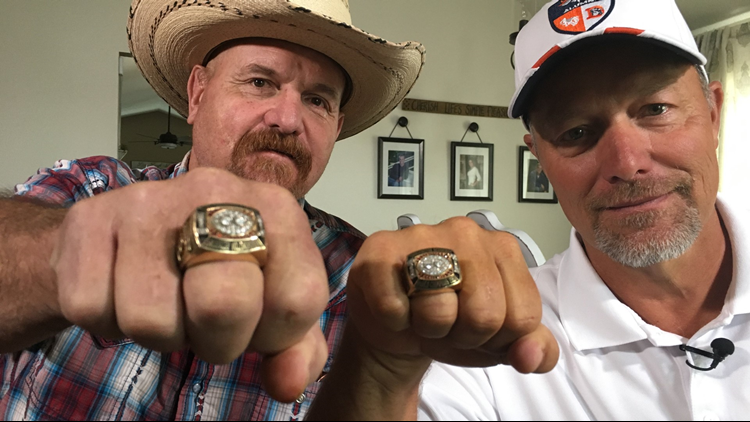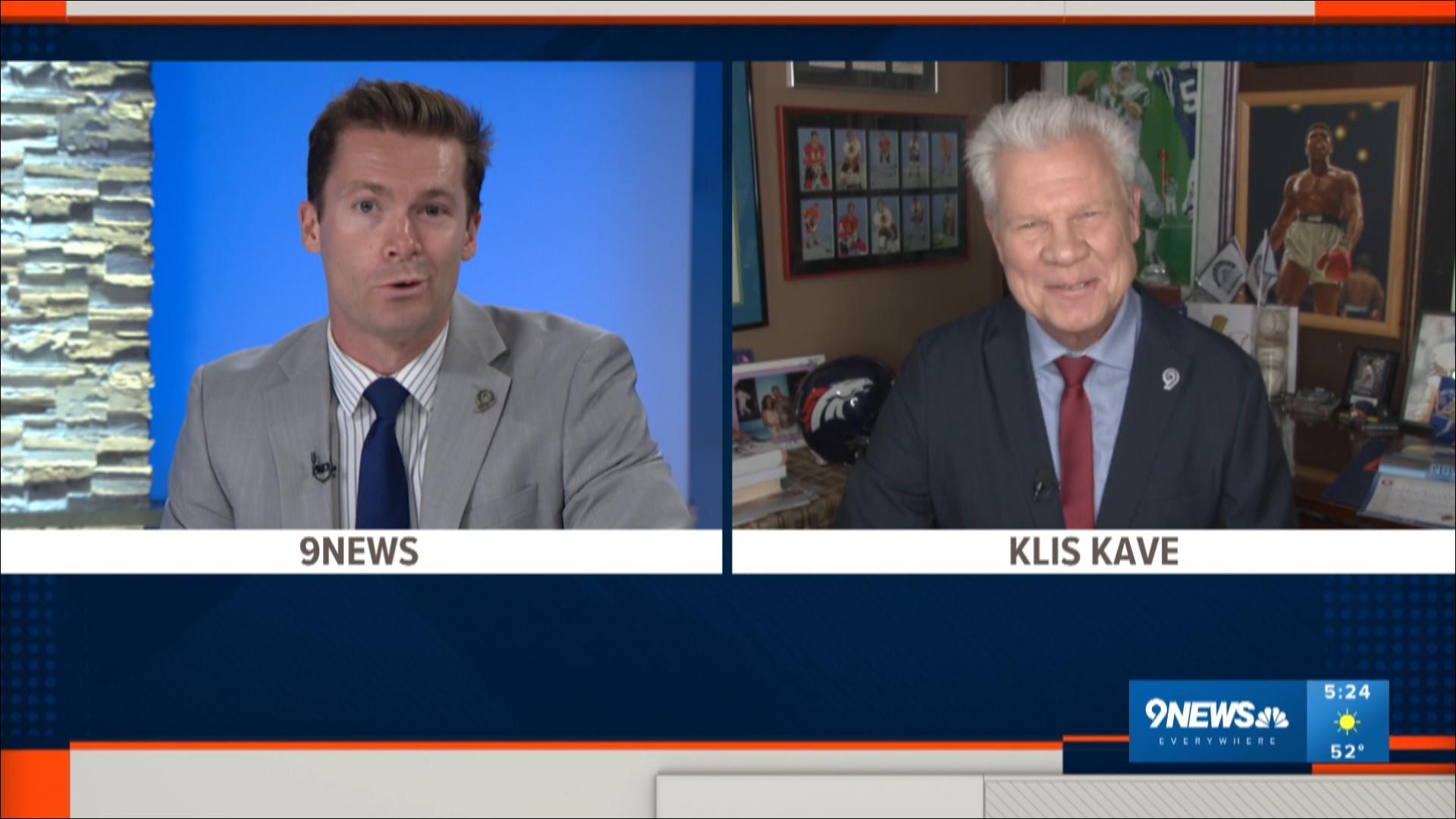It took 30 years, but the Washington Redskins finally put a Super Bowl ring on it. On June 12 the team finally presented championship rings to those replacement players who took the field while their regular players honored the NFL Players Association strike early in the 1987 season.
Colorado natives Eric Coyle and Jack Weil were part of the Redskins replacement team. For those two men, finally receiving championship jewelry after years of being labeled ‘scabs’ never felt sweeter.
“We were at the ranch and my son walked in and said, ‘let me show you something on your laptop,’ said Coyle, an offensive lineman who played at Longmont High and the University of Colorado. “He brought up the story, and it said ‘Redskins replacement players to receive rings.’ I choked up and had to walk out onto the porch to catch my breath. I couldn’t believe it.”
“Walking into the ceremony, seeing everybody and the joy on the faces, talking about old times …” said Weil, who attended Northglenn High and was an all-America punter at the University of Wyoming. “You wouldn’t imagine that it was 30 years ago that some of us saw each other. It was like it was yesterday. The jokes started flying.”
Washington defeated the Denver Broncos in Super Bowl XXII, 42-10 on January 31, 1988 in San Diego. Running back Timmy Smith (now a Denver-area resident) rushed for a Super Bowl record 204 yards. Quarterback Doug Williams threw four second-quarter touchdown passes and received the game’s Most Valuable Player award.
The Redskins were the only team that did not have a regular player cross the picket line, and the majority of the regulars despised the presence of a replacement team. “Our attitude was, we’re not doing anything you wouldn’t do if you were in our same situation,” Coyle said. “I’ve got an opportunity here to put some food on my table for a few weeks.
“The thing that the regulars didn’t realize was, we were playing for them. We were out there trying to win football games to put them in a place to go on and be successful. It wasn’t a selfish thing at all. To some extent it’s selfish because you’re trying to fulfill your own dreams and goals or whatever. But we took the heart the fact that if we win these games, we can set these guys up.”
The games counted in the NFL standings, and the Redskins’ replacements played three straight against NFC East division rivals. The first of the three was a home game at RFK Stadium against the St. Louis Cardinals.
Much as most of the Redskins regulars didn’t like the replacement players, most of the Redskins fan base wasn’t too thrilled about the idea of rooting for them.
“We didn’t know what to expect, walking into the stadium,” Coyle said. “We didn’t expect ovations. Are they going to throw batteries at us? Are they going to call us scabs?” The Redskins took a 14-7 lead, and the fans’ mood had been swayed. “By halftime they loved us,” Weil said. “They were chanting, ‘Stay on strike!’”
Washington held on to win 28-21. The following week, the played on the road against the New York Giants — coached by Bill Parcells and defensive coordinator Bill Belichick. The Redskins rolled to a 38-12 victory. The Parcells-Belichick led Giants had won Super Bowl XXI over Denver, but “they couldn’t beat the replacements,” Weil quipped.
The Redskins’ final replacement game was played against the Cowboys. In Dallas. In front of a national television audience for Monday Night Football. The Cowboys played with several regulars — including future Hall of Famers Tony Dorsett and Randy White. It didn’t matter, as the Redskins’ replacements won 13-7. “It was like winning the Super Bowl, the joy on the field,” Weil said. “It was a good way for me to go out.”
The Redskins kept Coyle on their practice squad for the remainder of the season. In fact, Coyle played the role of Broncos’ linebacker Karl Mecklenburg during the Redskins’ preparations for Super Bowl XXII.
Weil, who played six games for the Broncos during the 1986 season (he can boast of going 9-0 in his brief NFL career) grew up rooting for the Broncos from the south stands. He watched Super Bowl XXII at a bar in Thornton with family, friends — and 9,000 reasons to pull for the Redskins to win the game.
A Washington victory meant an additional $9,000 in playoff bonus monies for all the Redskins players — including the replacements. “It’s the only time I didn’t want the Broncos to win,” Weil said.
Both Weil and Coyle insist that if they had to do it all over again, they’d cross the line as replacement players. Bonuses and rings were not as meaningful as the brotherhood established amongst those teammates. “I wouldn’t give it a second thought,” Weil said. “The guys that we played with was a great group. It was the best time I ever had playing.”
A gold championship ring “doesn’t make me a better dad,” Coyle said. “ It doesn’t make a better husband, it doesn’t make me a better son. But it makes me a happier one.”



